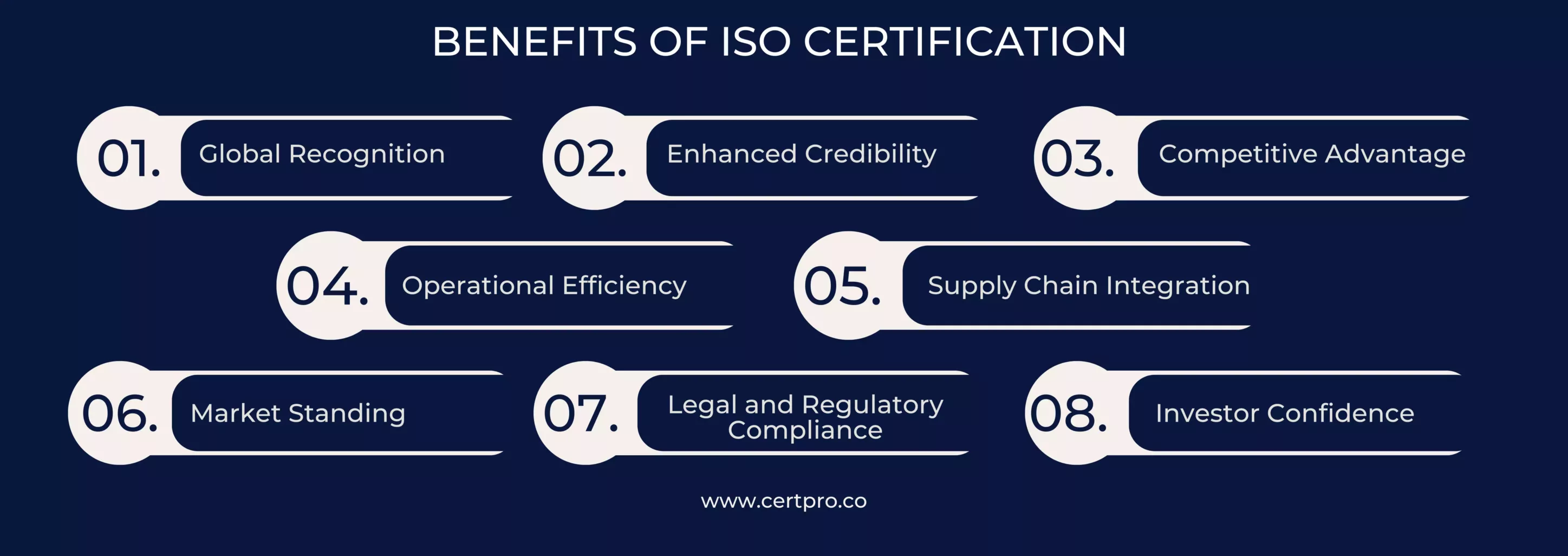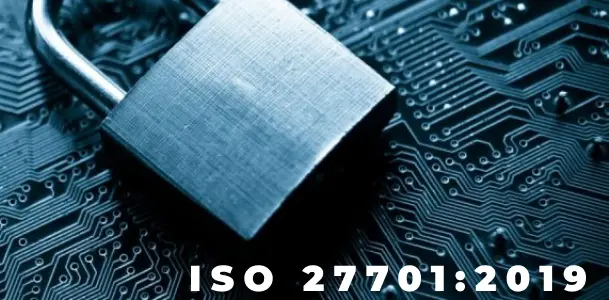DENMARK
ISO CERTIFICATION IN DENMARK
Denmark, a small northern country in northern Europe, places significant importance on ISO certification to uphold quality standards in its diverse economic sectors. Actively engaging in global trade, the nation, bordered by Germany to the south and surrounded by the North and Baltic Seas, considers ISO certification a crucial element of its dedication to international standards.
ISO certification in Denmark involves rigorous processes, including independent, voluntary audits that businesses undergo to attain and sustain certification. This commitment extends across various industries, reflecting Denmark’s evolution from a predominantly rural economy to one that is urbanized and industrialized. The manufacturing, technology, and service sectors contribute substantially to Denmark’s GDP, with ISO certification reinforcing the country’s dedication to delivering high-quality products and services on the global stage.
Denmark is committed to sustainability and technical advancement, which is reflected in its emphasis on research and development. Ensuring that firms follow international standards is crucial, especially when it comes to environmental sustainability and ethical business practices. This is where ISO certification comes in. Denmark is a pioneer in renewable energy, and its well-established offshore wind energy industry is ISO certified, demonstrating the nation’s commitment to environmental stewardship. This dedication is shown in other industries as well, such as manufacturing, where Denmark exports a variety of goods that meet strict quality standards.
Considering its high literacy rate, Denmark is among the most educated countries in the world. By allocating a sizeable amount of its GDP to the education sector, the nation prioritizes higher education. This expenditure underscores Denmark’s commitment to knowledge and skill development, emphasizing the importance of ISO certification in educational and scientific institutions. The Danish government’s pursuit of ISO certification essentially demonstrates its commitment to upholding high standards across a variety of industries. ISO accreditation is essential for Denmark to uphold its competitiveness in the global market, significantly enhancing its renowned competence in manufacturing, technology, renewable energy, and education.
WHY ISO CERTIFICATION IN DENMARK?
Securing ISO certification is essential for Danish organizations seeking to optimize operational efficiency, ensure quality, and instill confidence. ISO accreditation in Denmark signifies an unwavering commitment to upholding rigorous standards across various industries, showcasing a dedication to excellence. Notably, ISO 9001 certification plays a pivotal role by focusing on quality management, allowing Danish companies to develop reliable, customer-centric products and services.
Denmark, a country actively pursuing sustainable development amidst rapid industrial expansion, places equal importance on the environmental aspect, as stated in ISO 14001. As Denmark undergoes its digital transformation, the importance of ISO certification, especially ISO 27001, grows exponentially in safeguarding sensitive data within the dynamic digital landscape. These certifications carry particular weight in Denmark’s diverse market, elevating customer confidence and providing businesses with a competitive edge globally. ISO certification reflects a commitment to stringent standards, enhancing product reliability while minimizing waste. It streamlines processes, fostering increased productivity and reduced costs.
Denmark hosts numerous ISO certification bodies, offering services, guidance, and assessments to aid businesses in navigating the certification process successfully. At its core, ISO certification in Denmark empowers businesses to establish robust frameworks, align with global best practices, and actively champion excellence, sustainability, and security—contributing significantly to the nation’s progress.
UNDERSTANDING ISO CERTIFICATION IN DENMARK
Acquiring ISO 9001 certification in Denmark serves as evidence of a company’s steadfast commitment to delivering dependable and superior products and services. The ISO 14001 standard, placing emphasis on sustainable growth and addressing environmental concerns, is gaining prominence as Denmark’s industrial landscape advances. Safeguarding sensitive data, a pivotal aspect of ISO 27001, aligns with Denmark’s ongoing digital transformation initiatives. ISO certification plays a pivotal role in Denmark’s diverse market, fostering customer confidence and enabling companies to compete on the international stage. Beyond demonstrating adherence to stringent standards, ISO certification enhances product dependability through streamlined processes, waste reduction, and the elimination of inefficiencies. In Denmark, ISO certification empowers companies to establish robust frameworks in accordance with global best practices. Businesses prioritizing quality, sustainability, and security not only benefit themselves but also contribute to enhancing Denmark’s international standing. The International Organization for Standardization (ISO) formally recognizes compliance with specified standards in a company’s management system, procedures, goods, or services through ISO certification. As a globally recognized and independent organization, ISO develops and disseminates standards to ensure quality, safety, and efficacy across various industries. The widespread adoption of ISO standards facilitates the entry of Danish businesses into international markets with increased legitimacy. Companies with ISO certification often gain a competitive edge by showcasing their
Related Links
ISO 27001 in Denmark
HIPAA in Denmark
GDPR in Denmark
PCI-DSS in Denmark
SOC in Denmark
VAPT in Denmark
ISO 20000 in Denmark
ISO 22301 in Denmark
ISO 21001 in Denmark
ISO 41001 in Denmark
ISO 50001 in Denmark
ISO 29001 in Denmark
ISO 14001 in Denmark
ISO 45001 in Denmark
ROHS in Denmark
TQM in Denmark
ISO 22000 in Denmark
FSSC 22000 in Denmark
HACCP in Denmark
HALAL in Denmark
GMP in Denmark
KOSHER in Denmark
ISO 17025 in Denmark
ISO 13485 in Denmark
CE Mark in Denmark
GLP in Denmark
GDP in Denmark
commitment to quality and continuous improvement. ISO 14001 certification aligns with Denmark’s emphasis on sustainability and environmental management, catering to customer requirements, and enhancing satisfaction and retention. For Danish suppliers involved in international supply chains, ISO certification holds significant importance. A fundamental aspect of ISO certification is the emphasis on continual improvement, assisting Danish companies in streamlining processes and staying competitive. Ultimately, ISO certification elevates a business’s reputation by demonstrating adherence to international quality standards and instilling confidence among clients and associates.

THE ESSENTIAL STEPS OF THE ISO CERTIFICATION PROCESS IN DENMARK INCLUDE THE FOLLOWING:
Preparation and Awareness: The first step should be to thoroughly understand the particular ISO standard that applies to your sector and company objectives. Make yourself familiar with the benefits, requirements, and steps involved in putting the standard into practice.
Planning: Develop a thorough plan outlining the steps that must be taken to bring your operations into compliance with the ISO standard. Make a schedule for implementation and assign duties accordingly.
Documentation: Generate or revise essential documentation, encompassing policies, procedures, work instructions, and records, to ensure their alignment with the stipulations of the ISO standard.
Implementation: Incorporate your organization’s documented processes and procedures seamlessly into the entire structure. To ensure a successful deployment, closely monitor the implementation and make any necessary adjustments.
Internal Audit: Perform an internal audit to identify any non-conformities and evaluate the effectiveness of the implemented processes. Address these issues promptly and make the necessary adjustments.
Management Review: Evaluate the progress, effectiveness, and suitability of the ISO management system implementation through a management review. Identify whether any changes or improvements are necessary.
Certification Body Selection: Choose a reputable certifying body to conduct the external assessment. The certifying body will thoroughly examine your policies, practices, and execution to ascertain your readiness for certification.
Stage 1 Audit (Document Review): The certification organization’s initial assessment of your documentation and procedures verifies their compliance with the standards outlined in the ISO standard.
Stage 2 Audit (On-Site Audit): To validate the implementation of your ISO management system and evaluate the extent to which your processes align with standard standards, the certification authority performs an on-site audit.
Certification Decision: The certification body makes a determination on whether to grant certification based on the audit findings. If your business adheres to the standards outlined in the standard, it will be conferred with an ISO certificate.
Surveillance Audits: To ensure ongoing compliance with the ISO standard, the certifying body conducts regular surveillance audits. Typically occurring annually, these audits are designed to verify consistent adherence to the specified standards.
All the way through the process, it is imperative to keep a close eye on the certification organization’s requirements and to adhere to them strictly.
POPULAR ISO STANDARDS IN DENMARK
ISO 9001, part of the ISO 9000 family, stands out as the most recognized standard for quality management among the 14 available. Originally introduced in 1987, the latest version, ISO 9001:2015, emphasizes the establishment of a robust Quality Management System (QMS). This framework guides organizations in preparing to produce high-quality products, emphasizing customer focus, continuous improvement, and the incorporation of top management practices throughout the entire company.
ISO 14000, a family of environmental management standards, features ISO 14001 as its flagship certification. Similar to ISO 9000, it provides guidelines for environmental responsibility. ISO 14001 is the sole standard within this family that organizations can obtain certification for, emphasizing their commitment to environmentally conscious practices.
ISO 27000 concentrates on leveraging information technology to enhance security and protect company assets. The prominent standards within this category are ISO 27001:2013, a management-oriented system, and ISO 27002:2013, a technical document outlining a code of conduct for individuals involved in information security.
ISO 22000 is dedicated to establishing and implementing effective food safety management programs. Applicable to various organizations involved in the food industry, it includes standards like 22001 for food products and drinks and 22002 for regulating food production processes.
ISO 13485, distinct from other ISO standards, is a specific document tailored to the medical device industry. Introduced in 2003 with a revision in 2016, it sets up a Quality Management System for the design and production of medical equipment, catering specifically to the healthcare sector.
BENEFITS OF ISO CERTIFICATION IN DENMARK
In Denmark, ISO certification plays a pivotal role in ensuring that products and services align with international quality standards, enhancing customer satisfaction, and providing businesses with a competitive edge. Beyond this, ISO certification in Denmark mitigates the risk of business failure by guaranteeing the accurate implementation of processes. The certification process offers significant advantages to Danish organizations, fostering growth, bolstering credibility, and promoting operational excellence.
Foremost, ISO certification elevates a business’s position in the market by showcasing its commitment to global standards, thereby fostering increased trust among clients. This heightened credibility translates into greater customer loyalty and retention, reinforcing the company’s standing within the market.
ISO certification facilitates global market entry for Danish businesses by reducing trade barriers, establishing a recognized quality benchmark, and easing access to international trade. This proves especially beneficial for Danish companies seeking expansion abroad and capitalizing on global business opportunities. Moreover, ISO-certified Danish enterprises gain a competitive edge in the market, standing out from competitors and attracting potential clients and business partners through their dedication to efficiency, quality, and continuous improvement.
- Global Recognition: Danish companies now have more options to extend their market presence abroad and facilitate international trade thanks to the ISO certification’s global acceptance. Danish businesses may now operate genuinely and trustingly in international marketplaces thanks to this recognition, which gives them a significant competitive edge.
- Enhanced Credibility: At both national and international scales, it enhances the credibility and trustworthiness of clients, partners, and investors.
- Competitive Advantage: Businesses holding ISO certification outperform their competitors by demonstrating their commitment to excellence and quality.
- Operational Efficiency: Enhancements in processes contribute to an overall improvement in operational effectiveness.
- Supply Chain Integration: In order to collaborate with foreign partners, ISO certification is necessary for many multinational supply chains.
- Market Standing:Achieving ISO certification enhances a company’s market reputation, attracts more clients, and expands business opportunities.
- Legal and Regulatory Compliance: ISO certification simplifies compliance with both national and international laws.
- Investor Confidence: Showcasing a dedication to best practices enhances investor confidence.
ISO certification in Denmark empowers businesses to excel in a competitive landscape, establish trust in global markets, uphold ethical and sustainable business practices, and continually enhance operations for enduring success.

ISO CERTIFICATION BODIES IN DENMARK
The national accrediting body for certification bodies in Denmark is the Danish Standards Foundation, or DSF. The DSF has given several certifying organizations in Denmark the power to award ISO accreditation. In order to confirm that companies are adhering to various ISO standards, these recognized agencies audit them. Now, let’s look at some of the leading ISO certification bodies in Denmark:
Intertek DIC A/S: Intertek DIC A/S is a Danish company that operates within the testing, inspection, and certification industry. Intertek is a global company with a diverse range of services, including quality assurance, safety testing, and product certification across various sectors. They work with businesses to ensure compliance with industry standards and regulations, contributing to the overall quality and safety of products and services on the market.
FORCE Certification A/S: A Danish business that specializes in certification services is called FORCE Certification A/S. FORCE Certification A/S, being a certification authority, probably offers evaluation and confirmation services to guarantee that companies and goods meet certain requirements. These services might address things like environmental performance, safety, and quality control. It’s probable that FORCE Certification A/S is essential for firms to show that they are dedicated to fulfilling industry-specific standards and guaranteeing the dependability and caliber of their goods and services.
Bureau Veritas Certification Denmark A/S (BVC DK): A Danish company that specializes in certification services is called Bureau Veritas Certification Denmark A/S (BVC DK). BVC DK, being a certifying authority, probably provides evaluations and confirmations to make sure companies follow certain guidelines. These services could include a range of topics, including environmental practices, safety procedures, and quality management. Organizations seek to enhance the credibility and reliability of their products or services by showcasing their commitment to satisfying industry-specific requirements through their engagement with Bureau Veritas Certification Denmark A/S.
Factocert: Factocert is a consulting and certification services provider that helps businesses obtain and uphold a variety of certifications. They probably assist companies in adhering to global standards like ISO (International Organization for Standardization). Factocert may be able to provide knowledge in fields such as information security, environmental management, occupational health and safety, and quality management. Organizations aim to satisfy industry standards, improve operational efficiency, and show a dedication to best practices in their sectors by working with Factocert.
Veave: Veave is a business that seems to focus on offering consultation and certification services. With an emphasis on international standards like ISO (International Organization for Standardization), their services probably involve assisting companies in obtaining and maintaining a variety of certifications. Veave could provide assistance with things like information security, environmental management, worker health and safety, and quality control. Organizations that work with Veave seek to improve their competitiveness and credibility in the market by streamlining their operations, adhering to industry standards, and showcasing their dedication to best practices.
INDUSTRIES THAT BENEFIT FROM ISO CERTIFICATION IN DENMARK
As ISO certification continues to provide numerous benefits with a substantial impact on various industries in Denmark, many local firms recognize its pivotal role in achieving success. Beyond being mere status symbols, these certifications signify a strong commitment to quality, security, and sustainability. In the manufacturing sector, ISO 9001 accreditation contributes to enhanced product quality and increased operational efficiency. By fostering a culture of continuous improvement, this certification elevates customer satisfaction and gives companies a competitive edge. Consumers view ISO accreditation as a symbol of reliability.
In Denmark’s IT industry, ISO 27001 certification is crucial as data becomes increasingly valuable. This accreditation is instrumental in leveraging technological advancements while safeguarding confidential data and strengthening risk management and data security processes. Beyond commercial success, its significance lies in building client trust across various contexts. Simultaneously, the ISO/TS 16949 standard, tailored for the automotive sector, reinforces Denmark’s standing as a premier global manufacturer of high-quality vehicles, ensuring durability and safety. The nation’s healthcare system benefits from assurance in precision, legal compliance, and adherence to high standards.
These certifications extend their impact beyond individual companies, promoting sustainable construction practices and advancing environmental building technologies in Denmark. Businesses in Denmark engage ISO consultants to ensure adherence to ISO standards, guiding them through the certification process. This commitment encompasses certifications reinforcing data security, privacy, and healthcare standards in Denmark, including ISO 27001 certification in Denmark, SOC 2 certification in Denmark, GDPR certification in Denmark, HIPAA certification in Denmark, and PIPEDA certifications. Pursuing ISO certification in Denmark signifies dedication to broader societal and environmental well-being alongside corporate success. The involvement of ISO consultants underscores the strategic guidance companies seek to navigate the certification landscape effectively.
FAQ
What is the significance of ISO certification in Denmark?
In Denmark, ISO certification holds paramount importance as it ensures adherence to international quality standards across diverse industries. This commitment is essential for operational efficiency, quality assurance, and building trust in the competitive global market.
How can a company in Denmark obtain ISO certification?
To obtain ISO certification in Denmark, a company must undergo processes such as certification preparation, applying ISO standards, internal audits, selecting a certification body, and completing external audits. These steps are crucial in demonstrating conformity to international standards.
What are the key benefits of ISO certification in Denmark?
ISO certification in Denmark offers various advantages, including increased reputation, improved market access, enhanced operational efficiency, customer trust, regulatory compliance, and alignment with sustainable practices. These benefits contribute to the overall success and competitiveness of Danish organizations.
Why is ISO 9001 certification significant for Danish organizations?
ISO 9001 certification in Denmark signifies a commitment to quality management, enabling companies to develop reliable and customer-focused goods and services. This certification is crucial for enhancing product quality and gaining a competitive advantage in the marketplace.
What are the essential steps in the ISO certification process in Denmark?
The ISO certification process in Denmark involves preparation, planning, documentation, implementation, internal audit, management review, certification body selection, document review, on-site audit, certification decision, and surveillance audits. These steps ensure a systematic approach to achieving and maintaining ISO certification.
AI SECURITY: UNDERSTANDING THREATS AND COMPLIANCE SOLUTIONS
Artificial Intelligence continues to grow and become more relevant in workplaces. Customers widely use it to handle and market products. Organizations are desperately using AI for their businesses and ensuring that the AI systems comply with the new rules and...
FINDING THE RIGHT AUDITOR: THE ULTIMATE CHECKLIST
Selecting an auditor to implement industry-specific rules and regulations is vital. The choice can influence the company’s growth and financial health. Therefore, choosing the right auditor offers valuable insights and ensures compliance and economic stability. You...
HOW DOES THE NIST CYBERSECURITY FRAMEWORK FUNCTION, AND WHY IS IT IMPORTANT?
Emerging cyber threats make cybersecurity an essential consideration for organizations handling and managing data. In this regard, the NIST cybersecurity framework applies to improving your cybersecurity program. It is a set of guidelines that helps improve your...












